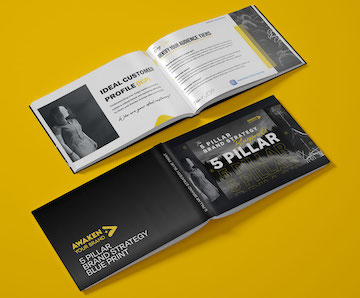As part of the new podcast series on brand building, today I talk about connecting your brand to people’s emotions.
Brands that tap into our emotions are far more successful than those that don’t. How about your brand? Is your message to your target audience on an emotional level or do you just communicate the features of your service or product?
For instance, if you are launching a clothing label and your first line is going to be printed t-shirts and hoodies. Ask your self why any one should buy your t-shirts or hoodies? What is your plan? Do you mean to sell to whomever would be willing to buy them or are you going to determine who your customers should be an then seek them out?
If you take the scatter shot method, then your label would have a tough time getting off the ground. The fashion sector is highly competitive and it is getting saturated by the minute.
Figuring out how your label can connect emotionally to your ideal customers should be your top priority – even more than the designs, the material or the manufacturing itself. With out this, you are at the mercy of random sales.
Your marketing will also be rudderless. You may spend your money on social media or adwords and hope for the best. But if you can come up with the emotional angle, your marketing and your messaging will fall in line. They would be much more focused and your marketing dollars will have better ROI.
Once you have this figured out, you can then focus on creating compelling statements about what your brand should mean to your customers. I am not talking about generic adjectives and ideas! The more specific, unique and powerful the statement is, the better your target market will understand and align with it.
If the emotional statement can be applied to your competitors then it is not good enough. It must be unique to your brand! Yes, I know, easier said than done, but that is how you differentiate yourself from your competitors!
If you have some time, I would suggest reading a beautiful paper by Anne Rindell called “What Brands Mean To us“. You can download the PDF file here.
Emotional stories can be based on a variety of aspects of your brand. If you have historical strength – that is, you have been running a successful brand before or are associated with some history of success, then you can use heritage as an emotional connection. If you started the brand with a powerful motivation that is beyond the money making requirement, then that would be an awesome emotional message.
If you are struggling to find an emotional connection, then you would need did deep with your target market and know everything there is to know about what makes them tick, what motivates them, what inspires them, what they love, what they hate and more. From this discovery you can identify an emotional angle that you can explore and try and associate with your brand.
The following are features that do NOT create an emotional connection and there is not point in wasting your time trying to use them to either differentiate your brand or form an emotional connection with your target audience:
1) Quality of service or product – I mean which brand would say that their product or service is mediocre? Right? Every one say they have the best service or the their product is the high quality or they use the best raw materials or ingredients etc. Do talk about your high quality of service or product but not as a differentiator. If some one were to ask you “Why should we buy your product or service”, you should not be saying because we offer the best quality service or product!
2) Your passion or commitment – Saying that you are passionate about the business or the field or that you are committed 110% is not going to cut it any more. There was a time when passion was a differentiating factor but not any more.
3) You are affordable or that you are the cheapest – this is a guaranteed recipe for disaster. Trying to battle your competition or connect with your target audience through virtue of being the cheapest will not work in the long term and in fact will lead you a very unprofitable business and eventual death of the brand. Try to offer value in your service or product. A value that benefits your customers and for which they are willing to pay a fair price.
In another episode I will talk more about competitive positioning strategies. Hope you found this episode useful and till the next one, good bye.
« Folorunsho Alakija: The Richest African Female Fashion Designer | Tetsuya’s: The Confit of Petuna Ocean Trout »

